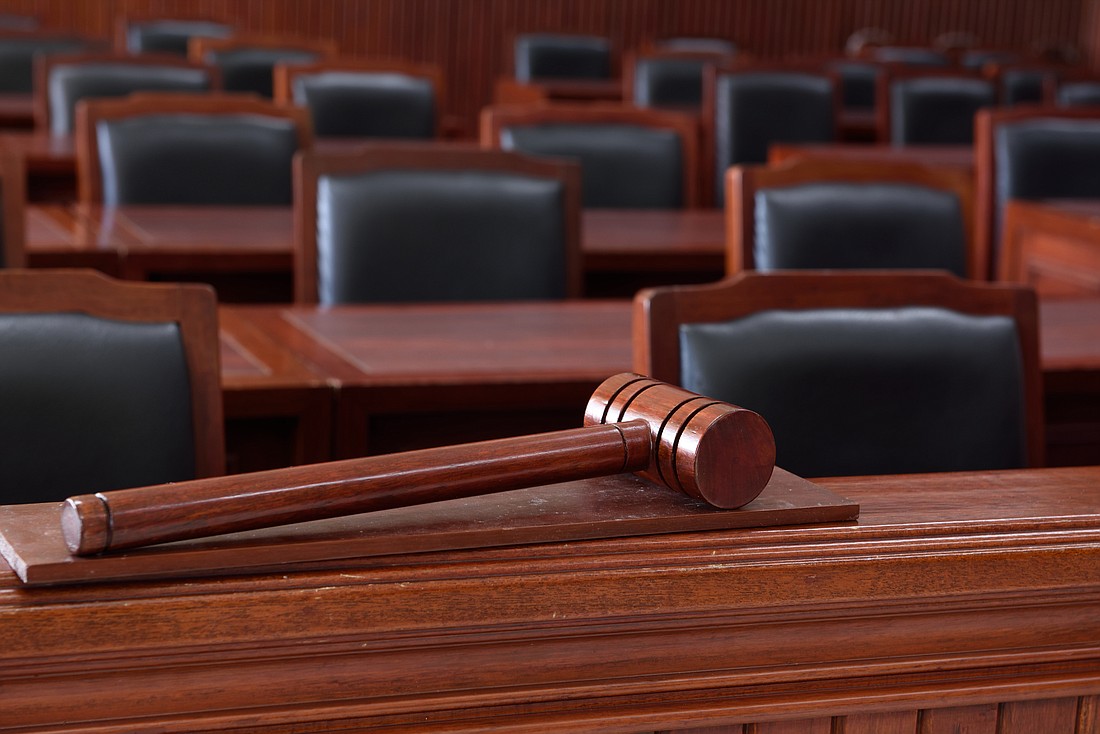- December 20, 2024
-
-
Loading

Loading

Ignoring arguments that the bill is unconstitutional, a House panel on Tuesday approved a controversial proposal that would make it easier for people to sue news organizations for defamation.
The measure, sponsored by Pensacola Republican Alex Andrade, seeks to limit the “actual malice” standard that for decades has protected journalists writing about powerful government officials.
Andrade, an attorney, filed the measure after Gov. Ron DeSantis called for the U.S. Supreme Court to revisit a 1964 decision in a case known as New York Times v. Sullivan, which held that the First Amendment limits public officials’ ability to sue for defamation.
The bill (HB 991) approved by the House Civil Justice Subcommittee, would make a number of changes to defamation standards and create a presumption that statements provided by anonymous sources are false. The measure also would strip the media of what is known as journalists’ privilege, which shields reporters from having to reveal news-gathering information such as sources’ identities, in defamation lawsuits.
The proposal also would prevent defendants who prevail in litigation from collecting attorney fees and costs.
The measure has caused alarm in media-law circles across the country, with critics saying it would have a chilling effect on watchdog reporting.
In an interview with The News Service of Florida last month, University of Minnesota media-law professor Christopher Terry called Andrade’s bill “horrible.”
“This bill is designed to protect people already in power or with power from journalistic investigation. … You’re not going to be able to do your job. You’re going to be a stenographer for the DeSantis administration. Because you’re not going to be able to criticize him in any way on anything he does as governor,” Terry said. “It’s dangerous.”
The proposal also would make it easier for people accused of discrimination to successfully seek damages for defamation.
Andrade told the House panel his proposal wouldn’t have any effect on journalists who do their jobs properly and that the changes are needed to protect people whose reputations have been sullied on social media or in the press.
“Florida courts have stated that an extreme departure from professional journalistic standards is not sufficient evidence to prove actual malice. So a journalist right now could say, ‘Your honor I didn’t defame them with actual malice, I’m just incompetent,’ and they would win the lawsuit,” he said.
But Carol LoCicero, a First Amendment lawyer whose clients include media outlets in defamation lawsuits, said the bill is unconstitutional.
The discrimination provision in the bill “runs afoul of United States Supreme Court case law” that “protects rhetorical hyperbole,” LoCicero said.
“The new (proposed) tort is a content-based restriction, and content-based restrictions on particular types of speech almost always fail constitutional scrutiny,” she said.
The proposed changes wouldn’t apply only to reporters, LoCicero cautioned.
“We want you to understand that the House bill hurts every speaker. It doesn’t just hurt … what’s been referred to as the ‘legacy media.’ It hurts people from all points of view. It hurts individuals. Frankly, it hurts politicians as they’re campaigning for office and making statements about their opponents,” she said.
The proposal also would allow people to file defamation lawsuits anywhere in the state, which LoCicero said would “facilitate forum shopping.”
The proposed changes, if passed, “will be used to try to crush critics of government policy,” warned Bobby Block, the executive director of the First Amendment Foundation. (Disclosure: The News Service of Florida has been a member of the First Amendment Foundation.)
“The bill’s sweeping provisions are not only unconstitutional, they are extremely dangerous to the future of public debate in Florida,” said Block, adding that Andrade’s proposal “weaponizes defamation law to the point that it represents a death knell for American traditions of free speech.”
Rep. Ashley Gantt, D-Miami, repeatedly questioned Andrade about parts of the bill, calling it an “attack on our First Amendment.” She argued that the bill defies decades of Supreme Court decisions, using a colloquialism while summing up her opposition.
“Hit dogs holler. This bill is about hurt feelings, and hurt feelings are not grounds to pre-empt federal law,” Gantt, an attorney, said, arguing that the measure appeared to be aimed at trying to spur the court to reconsider the Sullivan case.
The bill “seeks to chill the public forum of diverse opinions,” Gantt added.
“This bill is tantamount to the actual meaning of cancel culture,” she said. “It’s very anti-democratic and it’s very ironic that it’s being proposed in the free state of Florida Legislature.”
But Andrade pushed back, saying the bill would “provide clarity and tighten up situations where subjectiveness may occur.”
“Facts don’t care about your feelings. You’re entitled to your personal, subjective viewpoints. This bill does nothing to change that,” he said. “You’re entitled to be wrong in America. This bill doesn’t change that.”
Andrade also said his proposal would not have affected the outcome of the New York Times vs. Sullivan decision.
“What this bill will provide is opportunities for people who’ve been rightfully harmed by a false statement that hurt their reputation to seek justice and not be concerned and not have to spend egregiously enormous amounts of money to seek justice to provide that they were defamed with actual malice somehow because they’re arbitrarily listed as public figures,” he said. “Ultimately, I feel as if this bill gets misconstrued because people desperately want their right to call other people names.”